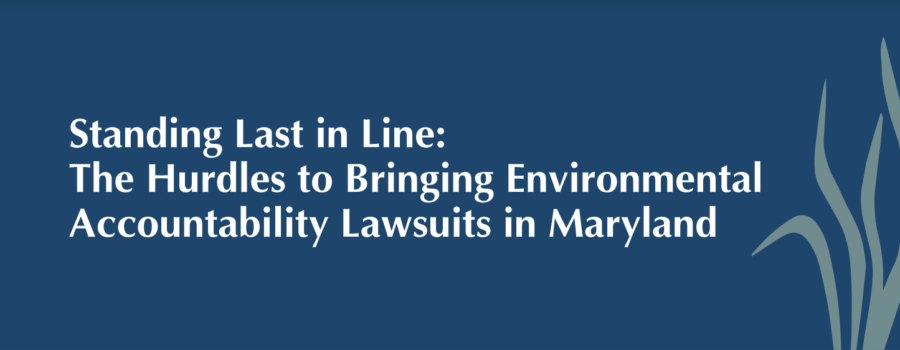Standing Last in Line: The Hurdles to Bringing Environmental Accountability Lawsuits in Maryland
In the United States, courts are a core component of the system established to address the dangers that pollution poses to the environment and people’s health. While legislatures have passed laws expanding protections for the environment, executive agencies have often proven unwilling or unable to properly implement and enforce these laws. Because of this, the public is left to appeal to the legal system to ensure environmental laws protect people and the environment and hold violators accountable.
To enforce environmental laws in court, however, an individual needs to have both a cause of action — a legal claim they can bring in court — and standing to sue — meaning they are the appropriate party to bring the claim. How people meet these requirements varies between federal and state courts and from state to state, creating a perplexing patchwork of standards that get in the way of ensuring everyone has access to clean water, clean air, and a healthy environment.
The Maryland General Assembly should enact a comprehensive set of environmental laws that provide Marylanders greater access to state courts and provide greater recourse for communities seeking to enforce state environmental laws and remedy environmental harms. These recommendations and more are included in a new policy brief by Chesapeake Legal Alliance, Waterkeepers Chesapeake, and the Center for Progressive Reform.





